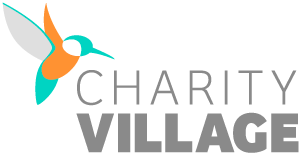I have an upcoming phone interview with an organization in a different city. How do I prepare for this?
If you’re competing in today’s job market, you should be prepared for interviews over the phone or, increasingly, via Skype, with or without a webcam. Preparing for a virtual interview is similar to preparing for one in-person. Here are some tips to help you get to the next stage of the competition.
Do your research just as you would for an in-person interview. Make sure you know all you can about the organization: explore their website, read their annual reports, talk to anyone you know who might be connected there. Take time to read over the job posting again, especially if you submitted your application awhile ago, and get a strong feel for what the job entails.
Prepare responses to expected questions. You should always expect to answer some variation of the questions “Why do you want this job?” and “Why should we hire you?” Use the job posting to help you think about what other questions they might ask and be prepared with specific examples of your own skills and experience.
Be prepared for a “pre-interview”. Although arranging an interview over email is common practice, many employers will call you to set up the interview time and date. From the moment you submit your application, expect this call. Always answer the phone professionally. This is their first impression of you—make it a good one! If you’re in a situation (e.g. driving, in a noisy restaurant) where you can’t answer the phone and have a professional conversation, let it go to voice mail and call back when you can.
Also give some thought in advance to what you need to know from the employer before the interview, such as:
- How many people will be interviewing you and what are their positions?
- How long should you expect the interview to last?
- Will they call you or do you call them?
- Is there a time difference between you and them—and which time zone is the interview in?
Make sure your technology works. Is your phone battery fully charged? Are you in a place with a reliable internet connection? If you have not used Skype before, make sure the (free) software is downloaded onto the computer (or tablet) you’ll be using for the interview. Do a test run with a friend to make sure your video and audio settings work.
Minimize background noises. Background noise is even more apparent when the interviewers don’t have a face to focus on. Make sure you’re in a quiet place for the interview: roommates, dogs and small children should all be out of earshot of the room you’re in for the interview. Turn off any other phones, radios, and the email alert on your computer. Consider closing your windows if you’re in a place with a lot of traffic, and putting a sign on your door asking people not to ring the doorbell.
Be aware of background visuals if you’re doing a webcam interview. Think about what else the interviewers can see. That pile of dirty laundry in the background will also be part of the impression you leave! Position your webcam so that there’s a neutral background such as a blank wall or curtains behind you.
Be extra conscious of pauses in the conversation. When you’re face-to-face, interviewers can see when you’re gathering your thoughts or taking a drink of water. Over the phone, you may need to verbalize this to explain your silence. It’s perfectly appropriate to say something like “That’s a good question. I just need a minute to think about that.” Just be aware that interviewers may also hear you rustling your papers or clacking on the keyboard if you’re googling for an answer. Use the mute button!
Also be aware that there may be pauses on the interviewers’ side as they take notes. Do not continue to fill the silence once you’re done answering the question. Expect a few seconds between questions — this seems like a long time when you can’t see the people but it’s natural. You can ask if they would like more information or if you can expand on anything in your response, but do not ramble on just to fill the space.
Be conscious of your verbal tics. Do you say “um” or “like” a lot? (Ask your friends and family members if you’re not sure.) These are even more apparent and distracting over the phone. Spend extra time rehearsing answers, and make an extra effort to speak clearly and concisely. Speaking a bit more slowly than you usually would is also helpful.
Dress appropriately. If you’re doing a webcam interview, dress as you would for an in-person interview—that is, in professional business attire. If you’re doing a phone interview then yes, you can do it in your pyjamas if you want. But your attitude will come across in your voice so think about what kind of attitude you’ll give out if you’re in your pyjamas. Some people dress in their “interview clothes” even for phone interviews because it helps them feel more confident and prepared. This is up to you.
Congratulations and best of luck with the interview!
Nancy Ingram and Christa McMillin are co-founders and partners at Foot in the Door Consulting which specializes in helping nonprofit professionals build sustainable, satisfying and values-driven careers. Together, they have over 30 years of experience on both sides of the hiring and management process in the nonprofit sector. They can be reached through www.footinthedoorconsulting.com.
To submit a question for a future column, please email it to careercoach@cv-test.careerleaf.com. No identifying information will appear in this column.
Disclaimer: Advice and recommendations are based on limited information provided and should be used as a guideline only. Neither the author nor CharityVillage.com make any warranty, express or implied, or assume any legal liability for accuracy, completeness, or usefulness of any information provided in whole or in part within this article.
Please note: While we ensure that all links and email addresses are accurate at their publishing date, the quick-changing nature of the web means that some links to other websites and email addresses may no longer be accurate.












